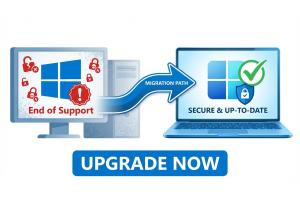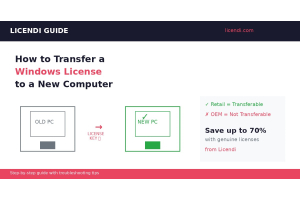All SQL Server Versions: Evolution, Features, and Key Differences
Did you know that SQL Server has evolved tremendously since its release in 1989? In this article, we review all SQL Server versions, explore their key features, and help you understand which one fits your needs best, whether it’s Standard or Enterprise.


What is SQL Server, and why is it so important?
SQL Server is a relational database platform developed by Microsoft, designed to handle large volumes of data securely and efficiently. Its ability to integrate with multiple business applications, data analytics, and cloud tools makes it indispensable in today’s tech landscape.
Fun fact: SQL Server is not only used by large corporations. It is also ideal for small and medium-sized businesses looking to optimize their data management.
The Evolution of SQL Server Versions
Here’s a quick summary of the major SQL Server versions and their key features:
- SQL Server 1989: The first version, developed in collaboration with Sybase, marked the start of this powerful tool.
- SQL Server 2000: Introduced XML support and better integration with web applications.
- SQL Server 2005: Brought improvements like SQL Server Management Studio (SSMS) and support for large databases.
- SQL Server 2012: Introduced AlwaysOn Availability Groups, ideal for high availability.
- SQL Server 2016: Compatible with business intelligence tools like Power BI.
- SQL Server 2019: Highlighted for its integration of Big Data Clusters and enhanced overall performance.
- SQL Server 2022: The latest version (to date) incorporates tighter cloud integration, especially with Azure Synapse and Microsoft Purview.
For more technical details about SQL Server, visit Microsoft's official documentation.
SQL Server Standard vs. SQL Server Enterprise: Which Should You Choose?
One of the most common questions when selecting a SQL Server version is whether to go for SQL Server Standard or SQL Server Enterprise. Both options are popular, but there are key differences to consider.
SQL Server Standard
- Ideal for small and medium-sized businesses.
- Provides basic relational database functionalities.
- Includes basic analytics and reporting tools.
Learn more about SQL Server Standard here.
SQL Server Enterprise
- Designed for large businesses with advanced needs.
- Includes features like data partitioning, advanced compression, and encryption.
- Supports large data volumes and more complex analytics.
Learn about SQL Server Enterprise here.
My advice? If your business handles large data volumes and needs scalability, Enterprise is the way to go. For smaller or moderate projects, Standard will suffice.
Key Features of the Latest Versions
Microsoft SQL Server is not only a robust tool but also constantly evolving. Here’s a breakdown of some standout features in the latest versions:
- Big Data Clusters: Introduced in SQL Server 2019, this feature allows you to integrate and analyze large volumes of data from multiple sources.
- Cloud Integration: SQL Server 2022 takes Azure compatibility to the next level, simplifying data and application migration to the cloud.
- Modern Language Support: From Python to R, SQL Server enables developers to work in familiar environments.
SQL Server in the Cloud: The Current Trend
With the growing demand for cloud solutions, many companies are adopting Azure SQL Database, a cloud version of SQL Server that offers impressive flexibility and scalability. Although it’s not a SQL Server version "per se," it uses the same foundational architecture, making it an easy transition for businesses already using SQL Server locally.


Frequently Asked Questions (FAQs)
1. How much does SQL Server cost?
The cost depends on the edition and license you choose. Standard is more affordable, while Enterprise is designed for more complex needs.
2. Which SQL Server version is best for me?
It depends on your needs. If you’re looking for advanced features, Enterprise is your best bet. If you need basic functions at a lower cost, Standard is ideal.
3. Does SQL Server work with operating systems other than Windows?
Yes! Since SQL Server 2017, Microsoft has introduced compatibility with Linux.
4. Can I upgrade an older SQL Server version to a newer one?
Absolutely! Microsoft provides tools and guides to make the upgrade process easier.
Final Thoughts: Which Version Do You Need?
Microsoft SQL Server is a versatile solution that adapts to various types of businesses and projects. From small businesses opting for SQL Server Standard to large corporations relying on SQL Server Enterprise, the right choice depends on your goals, budget, and specific needs.
Lastly, staying up to date with the latest versions can make all the difference in terms of security, performance, and compatibility with new technologies. Explore, test, and choose wisely!




